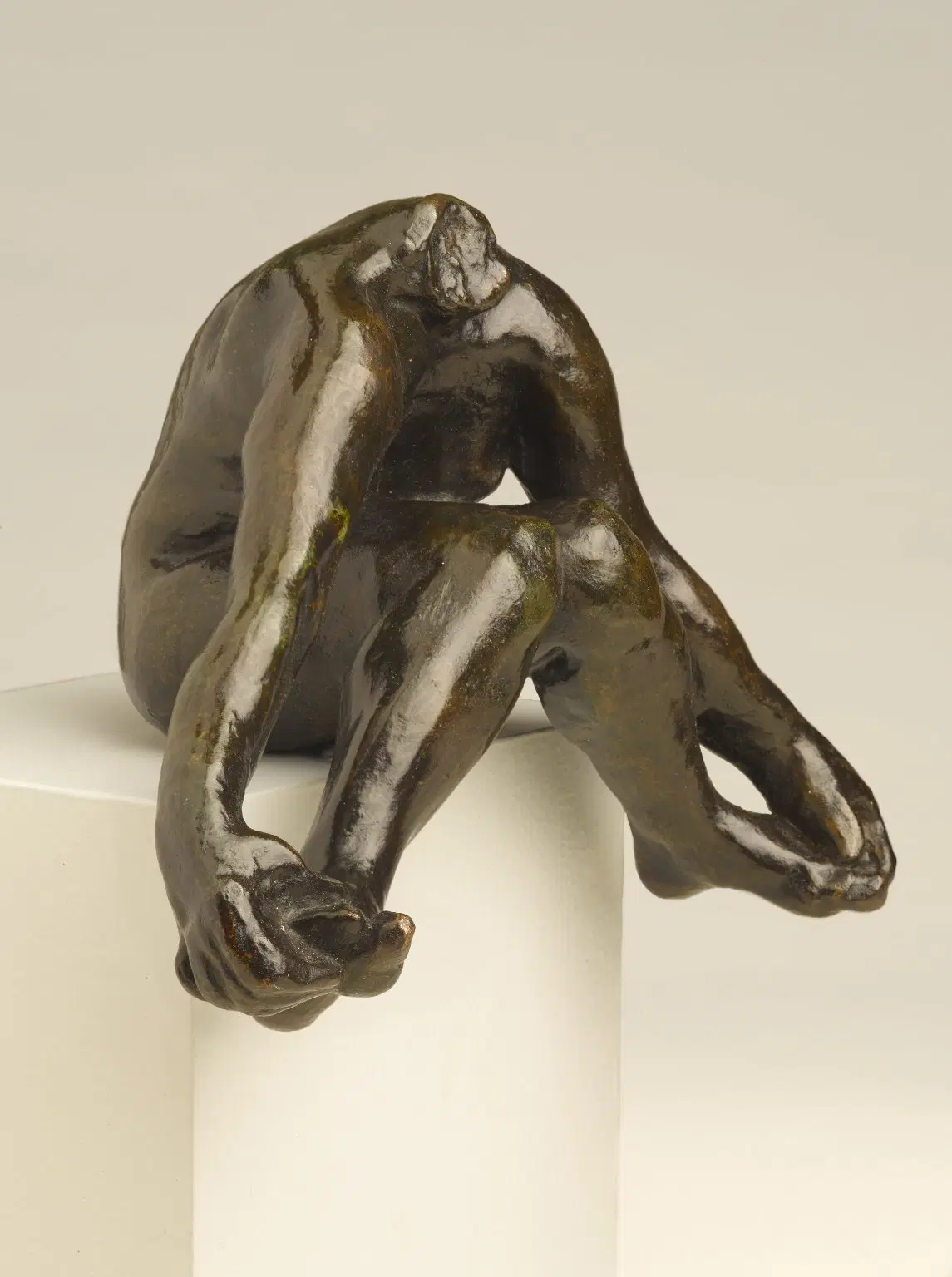Seated Bather with Feet Apart (Baigneuse assise, pieds écartés)

Brooklyn Museum photograph
Caption
Auguste Rodin French, 1840–1917. Seated Bather with Feet Apart (Baigneuse assise, pieds écartés), 1895–1900; cast after 1972. Bronze, 5 1/2 × 7 × 4 1/2 in. (14 × 17.8 × 11.4 cm). Brooklyn Museum, Gift of the Iris and B. Gerald Cantor Foundation, 84.75.1. Creative Commons-BY (Photo: Brooklyn Museum, 84.75.1_PS9.jpg)
Gallery
Not on view
Gallery
Not on view
Artist
Title
Seated Bather with Feet Apart (Baigneuse assise, pieds écartés)
Date
1895–1900; cast after 1972
Geography
Place made: France
Medium
Bronze
Classification
Dimensions
5 1/2 × 7 × 4 1/2 in. (14 × 17.8 × 11.4 cm)
Signatures
Thigh, proper left side: "A. Rodin."
Inscriptions
Proper left thigh: "No 5"
Markings
Proper right thigh: "Georges Rudier./Fondeur. Paris." Copyright mark, proper left thigh, underside: "© by Musée Rodin"
Credit Line
Gift of the Iris and B. Gerald Cantor Foundation
Accession Number
84.75.1
Rights
Creative Commons-BY
You may download and use Brooklyn Museum images of this three-dimensional work in accordance with a Creative Commons license. Fair use, as understood under the United States Copyright Act, may also apply. Please include caption information from this page and credit the Brooklyn Museum. If you need a high resolution file, please fill out our online application form (charges apply). For further information about copyright, we recommend resources at the United States Library of Congress, Cornell University, Copyright and Cultural Institutions: Guidelines for U.S. Libraries, Archives, and Museums, and Copyright Watch. For more information about the Museum's rights project, including how rights types are assigned, please see our blog posts on copyright. If you have any information regarding this work and rights to it, please contact copyright@brooklynmuseum.org.
Frequent Art Questions
Were the models who could make these poses professional models, athletes, or dancers or did Rodin exaggerate the poses?
For many of his sculptures, Rodin invited athletic models and professionally trained dancers into his studio to pose for him; he was interested in the expressiveness of the professionally trained body. However, Rodin also liked to manipulate his clay sculptures to exaggerate poses for expressive purposes.
Have information?
Have information about an artwork? Contact us at